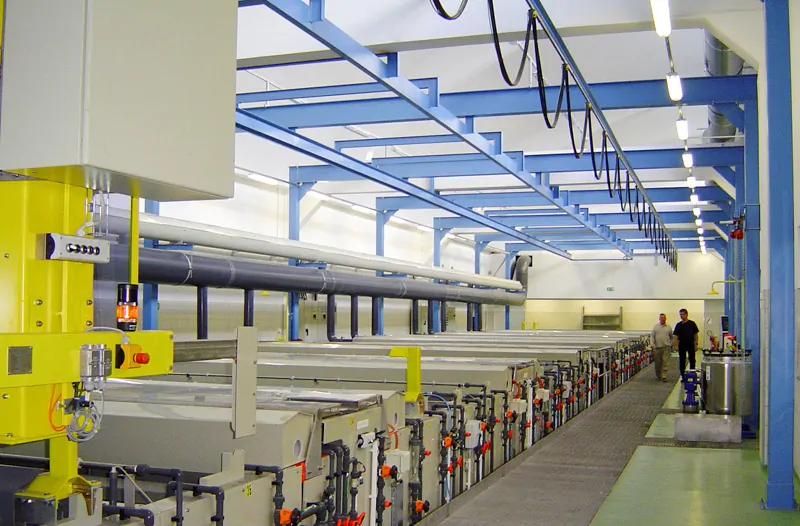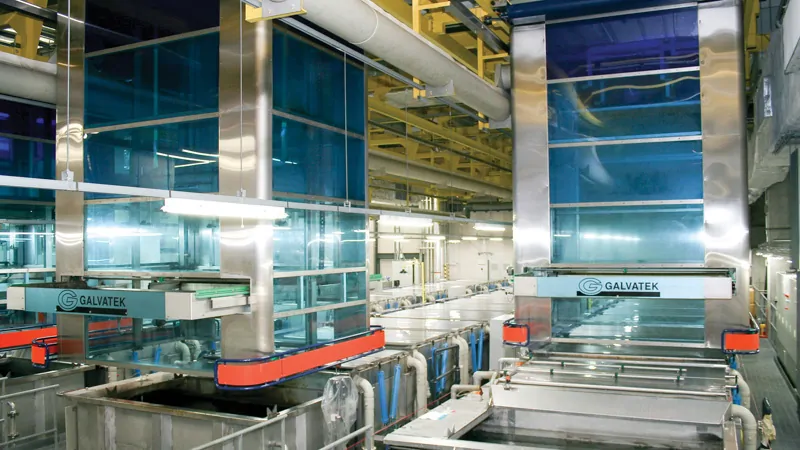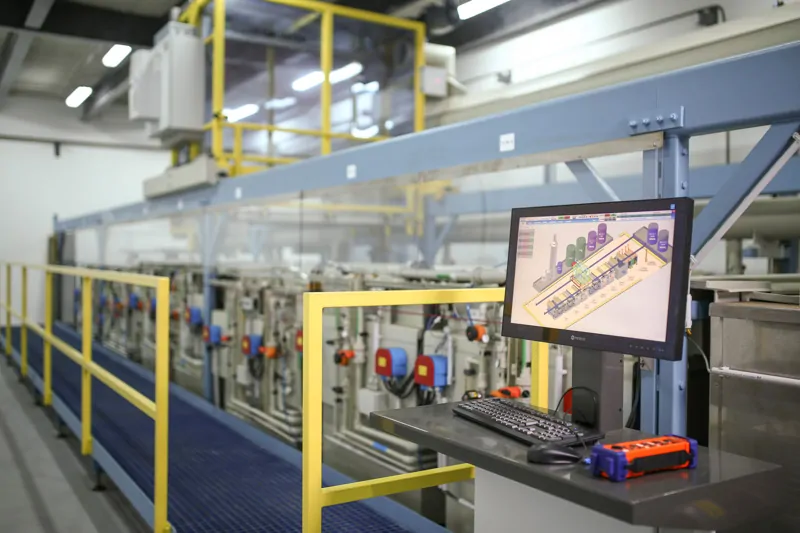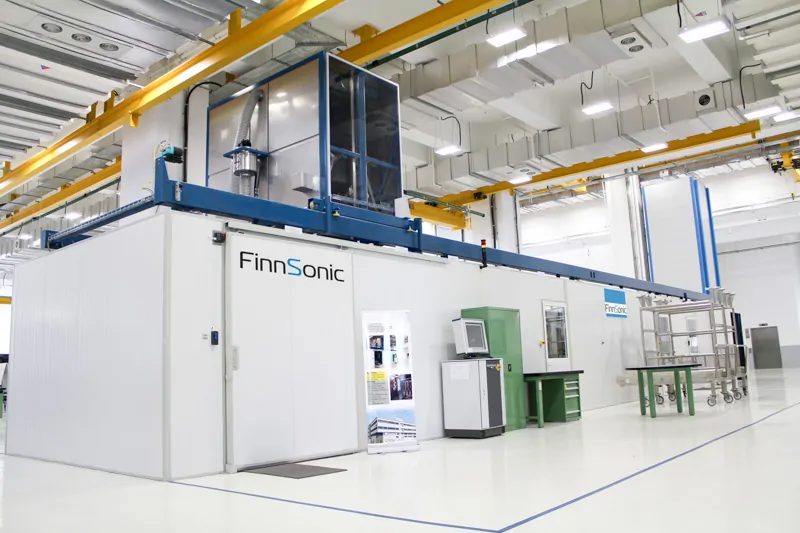Turbex can help you
When you need precise, fault-free automation in your manufacturing process, Turbex can deliver purpose-built surface treatment plants designed and tailored to your exact specifications.
What is surface treatment?
After a metal component has been machined, it can undergo one of a range of surface treatments to part or all of its exterior. Surface treatments can prevent erosion and improve the finish of metal machine parts, and enhance its mechanical or electrical properties.
The type of surface treatment will depend on the material of your parts, and what they need to be used for. Discover more about the different sorts of surface treatments available below, or get in touch with Turbex for more information.
Types of surface treatments
Automated anodising lines
What is anodising? Also known as electrochemical surface treatment, anodising enhances the natural oxide layer of an aluminium surface when it comes into contact with oxygen and can be used on aluminium components.

Automated chemical cleaning lines
What is chemical cleaning ? Chemical cleaning removes contaminants such as carbon, scale, paint, coatings, oils and grease. Our lines are heavily used in the aviation industry, primarily for maintenance, repair and overhaul (MRO).

Automated chemical etching lines
What is chemical etching? Chemical etching is the subtractive machining process that’s used to chemically corrode components to produce extra features like pockets and channels. Etching can be used on a wide range of metal components.

Non-destructive testing (NDT)
What is non-destructive testing? NDT is used to detect surface defects in a range of metals and non-porous materials. The most common of which is fluorescent penetrant inspection (FPI), also known as penetrant flaw detect (PFD). NDT is used on a range of components, primarily in the aerospace industry.

Get in touch…
Let’s chat to find out how we can help your business to grow.
